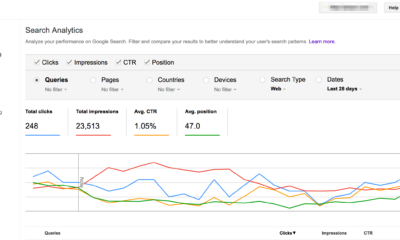News
Judge orders Google to end Exclusive Search Deals, share Data in Antitrust Ruling

A federal judge has delivered a landmark ruling in the Department of Justice’s antitrust case against Google, ordering the tech giant to end its use of exclusive search engine contracts and share its valuable search data with competitors.
However, in a partial victory for the company, U.S. District Judge Amit Mehta ruled that Google will not be forced to sell its popular Chrome browser.
The decision strikes at the heart of Google’s business model, which has long relied on lucrative, exclusive agreements to maintain its dominance in the search market.
Most notably, these deals included paying companies like Apple billions of dollars annually to make Google the default search engine on smartphones and browsers, a practice Judge Mehta found to be anticompetitive.
By mandating an end to these exclusive contracts for its Search, Chrome, Assistant, and Gemini products, the ruling aims to level the playing field for rival search engines.
While the ruling is a significant blow, it stops short of the most severe penalty sought by the DOJ: the divestiture of the Chrome browser.
The DOJ had argued that selling off Chrome was necessary to dismantle Google’s monopoly. Judge Mehta disagreed, stating, “Google will not be required to divest Chrome… Plaintiffs overreached in seeking forced divestiture of these key assets, which Google did not use to effect any illegal restraints.”
This allows Google to retain a critical asset that provides invaluable user data for its advertising and search ranking operations.
The ruling is the culmination of a legal battle that began when the DOJ sued Google in 2020. After a lengthy trial, Judge Mehta first ruled in August 2024 that Google had indeed violated antitrust law by illegally maintaining a monopoly in internet search.
The latest decision outlines the specific remedies to address that violation.
The fight is far from over, as Google has announced its intention to appeal the ruling. This legal challenge means it could be several years before any of the penalties are enforced and the full impact on the search market is realized.
-

 Domains6 years ago
Domains6 years ago8 best domain flipping platforms
-

 Business6 years ago
Business6 years ago8 Best Digital Marketing Books to Read in 2020
-

 How To's6 years ago
How To's6 years agoHow to register for Amazon Affiliate program
-

 How To's6 years ago
How To's6 years agoHow to submit your website’s sitemap to Google Search Console
-

 Domains5 years ago
Domains5 years agoNew 18 end user domain name sales have taken place
-

 Business6 years ago
Business6 years agoBest Work From Home Business Ideas
-

 How To's6 years ago
How To's6 years ago3 Best Strategies to Increase Your Profits With Google Ads
-

 Domains5 years ago
Domains5 years agoCrypto companies continue their venture to buy domains








